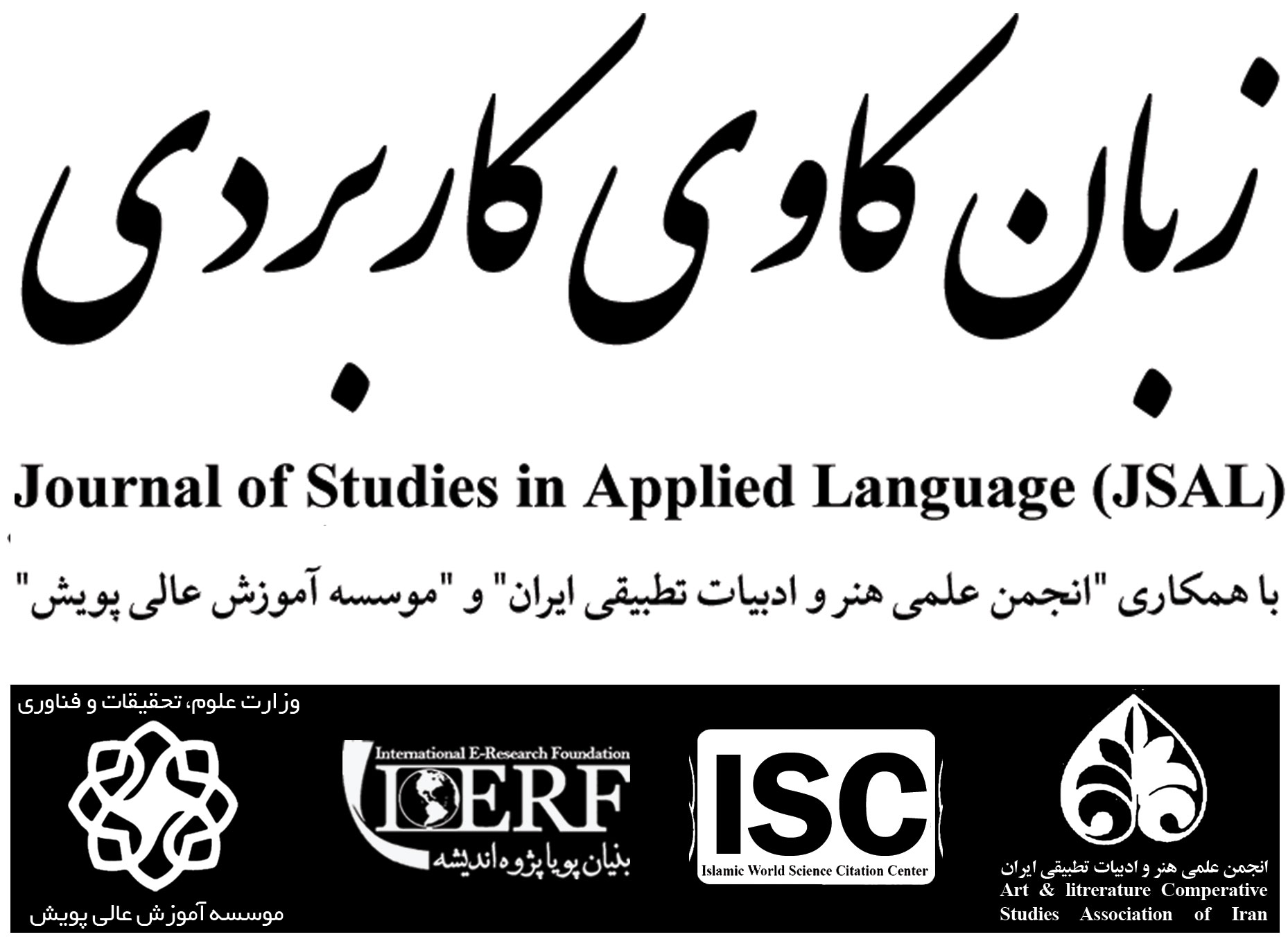Volume 8, Issue 1 (Journal of Studies in Applied Language (JSAL) 2025)
JSAL 2025, 8(1): 29-51 |
Back to browse issues page
Download citation:
BibTeX | RIS | EndNote | Medlars | ProCite | Reference Manager | RefWorks
Send citation to:



BibTeX | RIS | EndNote | Medlars | ProCite | Reference Manager | RefWorks
Send citation to:
Falahati S, kosari jafarabad A. (2025). The Conceptual Metaphor of Love in the Poetry Collection of Omar Ibn Abi Rabiah [In Persian]. JSAL. 8(1), 29-51.
URL: http://jsal.ierf.ir/article-1-140-en.html
URL: http://jsal.ierf.ir/article-1-140-en.html
1- university kharazmi
2- university kharazmi , afsane.kosari@khu.ac.ir
2- university kharazmi , afsane.kosari@khu.ac.ir
Abstract: (1285 Views)
Cognitive linguistics is a newly emerging branch of linguistics whose primary foundation is based on the principle that language reflects the functioning of the mind and emphasizes the connection between mind and language. The introduction of the concept of conceptual metaphors in cognitive semantics is considered one of the most influential achievements of modern linguistics, first proposed in 1980 by George Lakoff and Mark Johnson. They emphasized that metaphors are essentially conceptual, not merely lexical. Metaphors are generally not based on similarity but are formed based on experiential correlations between two different conceptual domains. One of the abstract and significant concepts addressed by Omar Ibn Abi Rabiah in his poetry collection is the theme of love. Love and its related concepts are expressed metaphorically in his poetry. The present study examines the metaphor of love within the framework of cognitive semantics using a descriptive-analytical method based on Lakoff and Johnson’s theory. Accordingly, the concepts within his poems that evoke the notion of love are extracted and analyzed. The results indicate that the overarching metaphors centered on love include propositions such as: "Love is pain and illness," "Love is fire," and "Love is madness and insanity"—all reflecting that the poet views love as destructive, painful, and annihilating. In most of his metaphorical mappings of love, the poet moves from the mental towards the physical, although in some cases he employs more tangible mental mappings to deepen the understanding of love. Omar Ibn Abi Rabiah uses negative tangible expressions such as pain and illness, war, murder, fire, and theft, which reflect the hardships and difficulties of the path of love and point to its negative aspects. In contrast, he also employs positive and desirable expressions such as immortality, beauty, and healing. Some of the poetic mappings are dual-faceted. For example, in the conceptual metaphor "Love is sorrow and grief," although this grief is heartbreaking, for the lover, this pain and suffering are desirable and pleasant. The bitterness of this grief is accepted wholeheartedly by the lover, who willingly endures all kinds of humiliation and disgrace in this path.
Keywords: Conceptual Metaphor, The Conceptualization of Love, Omar Ibn Abi Rabiah, Lakoff and Johnson's Theory
Type of Study: Research |
Subject:
Discourse Analysis
Received: 2024/07/10 | Accepted: 2024/09/29 | Published: 2025/03/2
Received: 2024/07/10 | Accepted: 2024/09/29 | Published: 2025/03/2
Send email to the article author
| Rights and permissions | |
 |
This work is licensed under a Creative Commons Attribution-NonCommercial 4.0 International License. |







